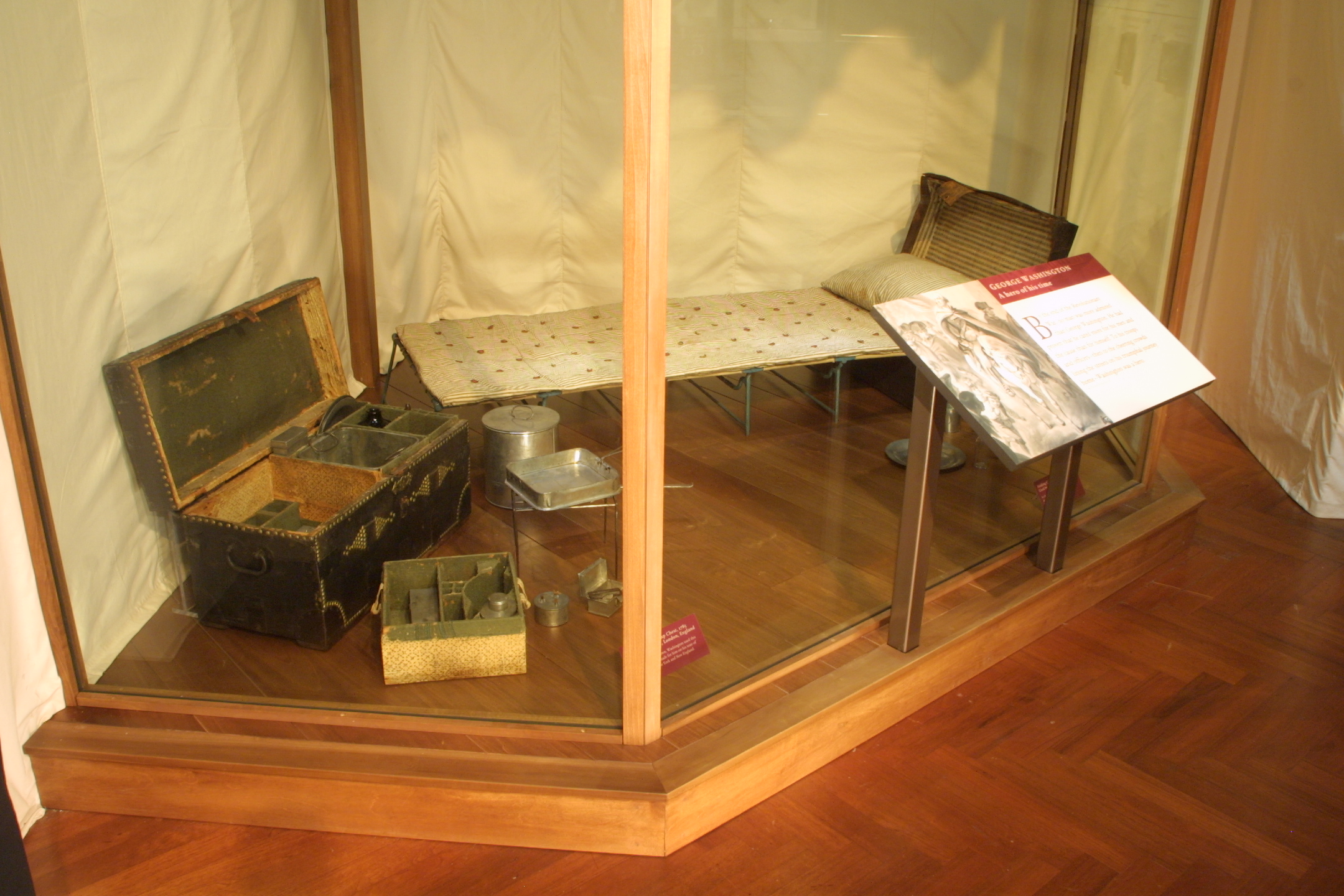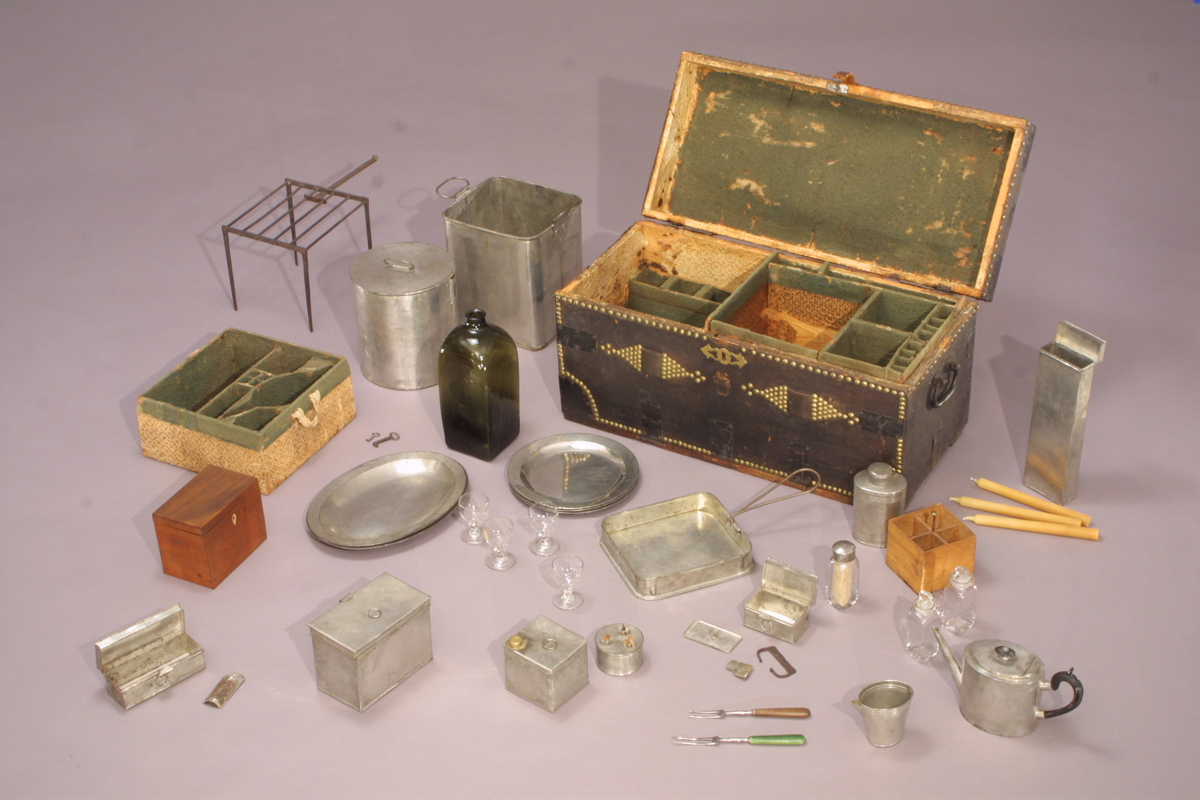“George Washington Slept Here” — No, Really!
| Written by | Jeanine Head Miller |
|---|---|
| Published | 2/20/2012 |
“George Washington Slept Here” — No, Really!
| Written by | Jeanine Head Miller |
|---|---|
| Published | 2/20/2012 |

Dotting the landscape of places like Pennsylvania, New Jersey and New York are numerous Colonial-era homes and taverns where George Washington is said to have spent the night. Some of these claims are true; some are likely only wishful thinking. But the desire to claim a tangible connection to our Revolutionary War hero and first president runs strong.
As commander of the Continental Army during the American Revolutionary War, General George Washington usually did sleep and eat in the nearby homes of well-to-do people during the eight years he led the American military campaign. But among George Washington’s camp equipage were tents, this folding bed, cooking and eating utensils, and other equipment that he used when encamped on the field with his troops.

Yet the George Washington camp bed in The Henry Ford’s collections is more than just a humble cot, used when no better option was available. This object symbolizes George Washington as a leader who cared more about his men and the cause of democracy than he did for himself.
In Henry Ford Museum’s With Liberty and Justice for All exhibit, visitors stand in quiet contemplation before the Washington camp bed on display, gazing at a humble cot where the great general took some weary rest during the struggle for American independence.
A great many stories of American ingenuity and innovation abound in Henry Ford Museum. But these stories generally do not involve military history. Why, then, display a bed associated with war?
With Liberty and Justice for All explores the proud and painful evolution of American freedom, from the Revolutionary War through the struggle for civil rights. This exhibit, then, is about social innovation: new ideas that render old ways obsolete and radically alter how people think about themselves, their interactions with others, and the larger world.
The Revolutionary War became about more than just American independence from Britain. It evolved into a new way of thinking: that it was possible for a people to govern themselves through a democratic system of elected representatives. The Revolutionary War also launched Americans on the road toward a newfound sense of national identity as Americans, rather than British subjects, New Englanders or Virginians. And George Washington was at the center of that new way of thinking.
Jeanine Head Miller is Curator of Domestic Life at The Henry Ford.
Keywords | |
|---|---|
Themes |
